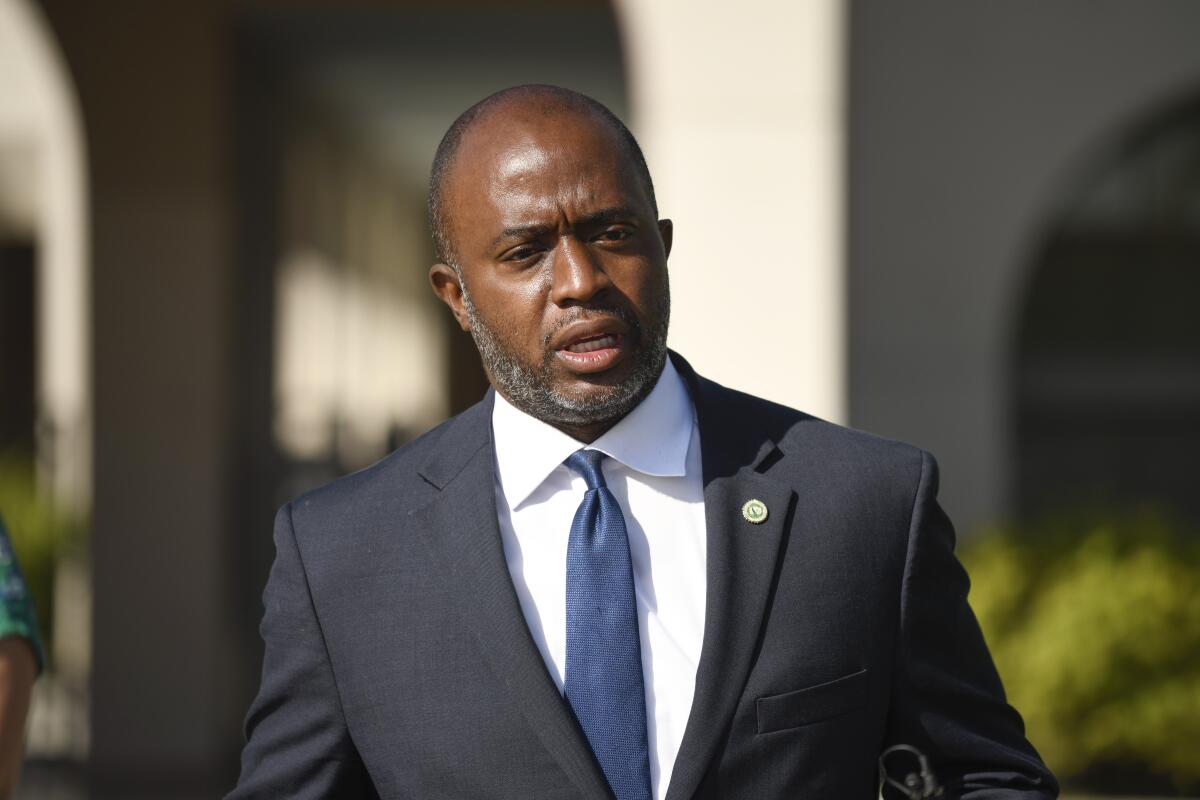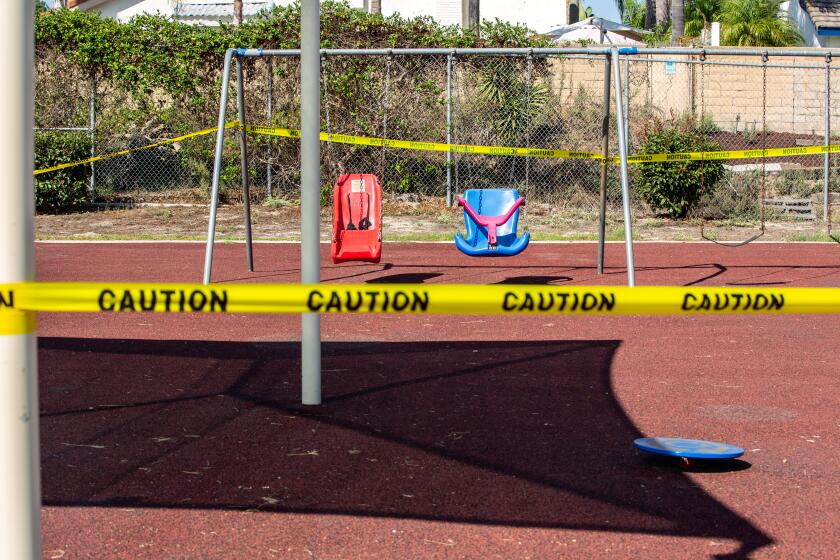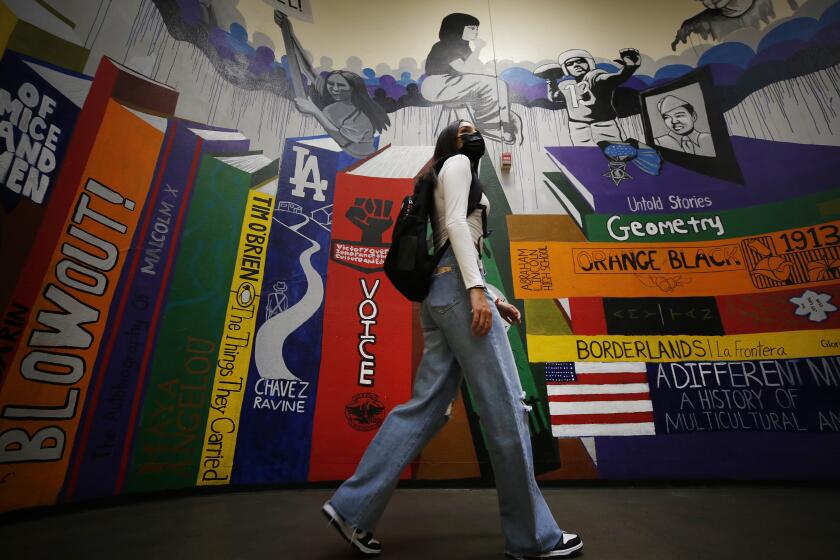Editorial: California should not have hired a deputy schools chief who lives in Philadelphia. But here’s the real issue

In a state as large and diverse as California, is there no one who could do an excellent job of creating better educational equity for the state’s Black, Latino and Native American children? It sounds like a silly question, but it has to be asked after the state Education Department hired a psychologist and self-help coach from Philadelphia — who still lives there — as its deputy superintendent of equity, at a salary of more than $160,000 a year.
The hiring came about through a combination of misunderstanding and questionable decisions, plus a concerning situation with a private foundation that hires high-ranking officials within the Education Department without being state employees or subject to the transparency that California law requires. And though the deputy superintendent resigned Tuesday evening, after the unusual arrangement came to light, the issues involved are ongoing and need to be addressed.
Tony Thurmond, the state’s superintendent of public instruction, had a hand in the hiring of his old friend Daniel Lee, according to Politico, which broke the story. The two go back more than 20 years, when they were both social workers in Philadelphia.
Lee appears highly qualified and, according to Mary Nicely, chief deputy superintendent at the Education Department, who spoke with The Times, he did an outstanding job, including training the agency’s staff in implicit bias, winning grants that go to schools for anti-racism work, expanding the department’s mental health staff from one to four people and making student mental health a priority. That’s important, as the U.S. surgeon general’s alarming report last week on the mental health of children made clear.
Good for the U.S. Surgeon General, who pointed out that kids are in crisis emotionally and need immediate and comprehensive attention
Nicely said the Education Department asked the state’s human resources people about the residency issue and were given the go-ahead. But, in fact, state law prohibits the hiring of non-California residents unless there’s a specific reason their jobs are located elsewhere, such as Washington lobbyists. And though the agency is not legally required to post the job publicly, that would have been a good idea.
It must be tempting to hire old buddies, especially those who have the qualifications for the job. But it smacks of cronyism — and this is a job that should be performed by a someone in California, both as a matter of state law and as good practice. It’s hard to swallow any argument that Lee had skills that haven’t been mastered by numerous professionals who live right here.
For that matter, Lee’s residency in Philadelphia put him at a disadvantage in the job. That city’s demographics are markedly different from California’s, with far more Black residents — 44% — compared with our state’s 6%. Philadelphia is 13% Latino; that group makes up 39% of Californians. Why not pick someone from the state who is intimately familiar with its demographics and cultural subtleties, and who can visit schools, see situations first-hand and speak with students, parents and teachers?
A Los Angeles Times analysis of data offers an alarming assessment of the impact of the pandemic on L.A. students.
Even though Lee resigned, that doesn’t fix the odd circumstances under which he was hired.
The original hire wasn’t made by the department, though it was done with Thurmond’s close involvement. Lee was hired and paid by a private foundation, Californians Dedicated to Education, a nonprofit based in Silicon Valley that funds various initiatives for the department. It brought Lee on in July 2020.
Nicely said that the position was initially offered as a six-month job and that it would have been hard to find someone to take a short-term position. Certainly, without posting the position, they were unlikely to find an in-state candidate. And in ways, the quick hire made sense. We all like to complain about bureaucracy; this was quick action in the wake of the George Floyd protests and the pandemic’s effect on kids’ mental health. But as often happens with public-sector jobs, the position became permanent after several months, funded by taxpayers and devoid of a meaningful search for an in-state candidate to take the spot.
The foundation continues to hire for the state agency, though in very small numbers — Nicely guesses that about six people are paid by the nonprofit. In October, the Education Department announced two new hires, one of them former L.A. Unified board member Steve Zimmer as a deputy superintendent whose portfolio will be community schools and absenteeism. The Education Department won’t divulge his salary, though; it doesn’t have to because he’s an employee of the foundation. And no one knows how long the foundation will pay or when taxpayers might eventually foot the bill.
There’s little doubt that the intentions are good, to hire qualified, dedicated people to do important work. This nonetheless functions as a work-around when it comes to transparency about hiring, salaries and the like. Deputy superintendents of education should be California hires and state employees, answerable to the taxpayers and the laws of public accountability in the state.
More to Read
A cure for the common opinion
Get thought-provoking perspectives with our weekly newsletter.
You may occasionally receive promotional content from the Los Angeles Times.












